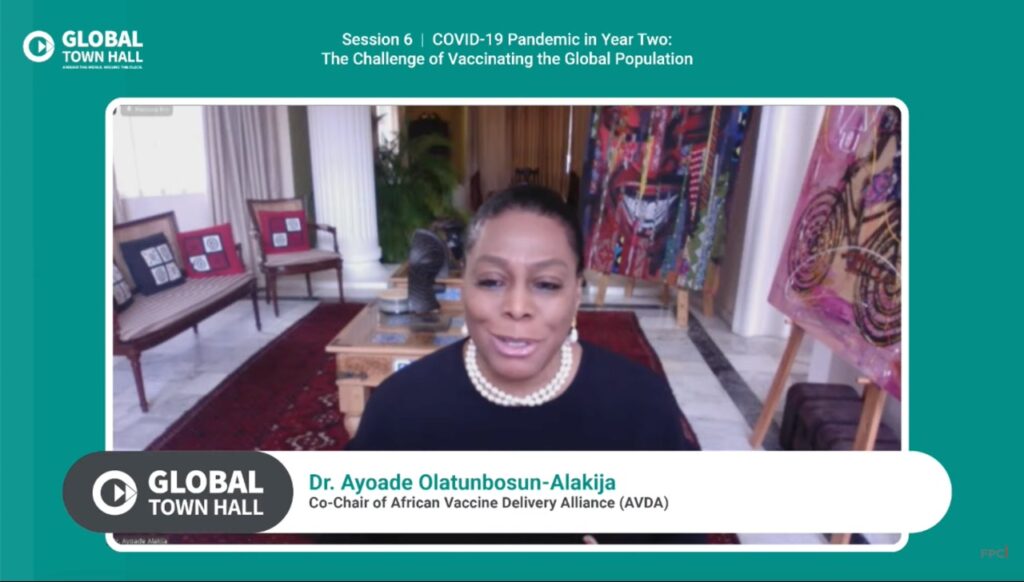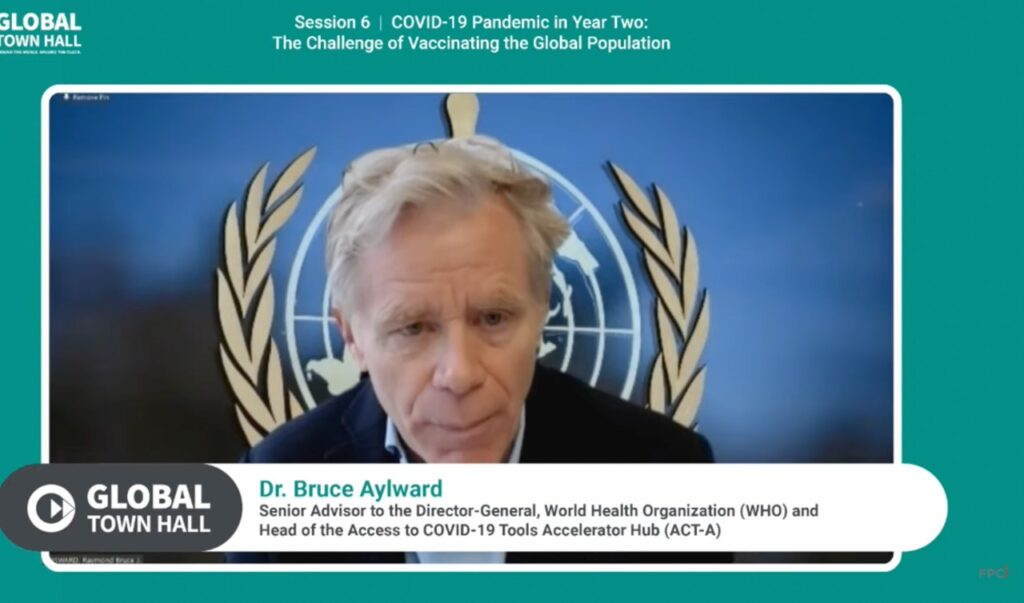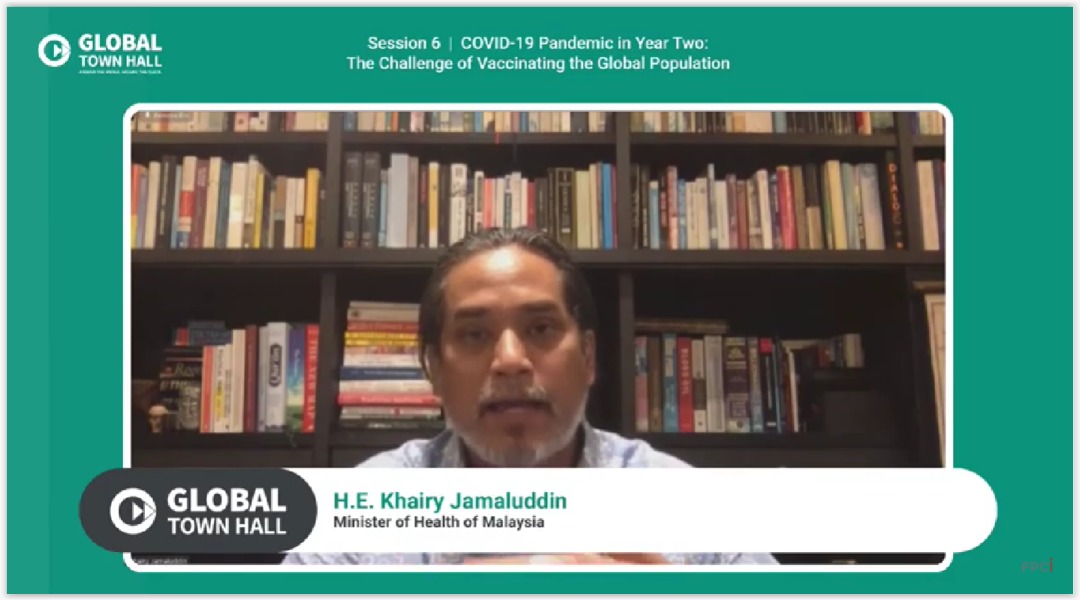KUALA LUMPUR, Nov 22 — Malaysia is only expected to receive delivery of Covid-19 vaccines for children towards the end of the second quarter next year, Khairy Jamaluddin revealed.
The health minister complained that the same global inequity seen with adult Covid-19 vaccination — as dozens of countries have not managed to inoculate even 10 per cent of their population — was being repeated with paediatric coronavirus inoculation for children under 12.
“I’ve had an indication of the delivery schedule for the children’s vaccines that has just been approved by the FDA (United States Food and Drug Administration). And it’s the same thing again — we’re going through the same round of inequity again.
“Most of the vaccines that will come to Malaysia — even though we’re one of the earliest to put down, we’re willing to sign an agreement — it’s going to come towards the end of the second quarter, when other countries have started vaccination.
“So unless we really really look at this and talk about globalism and multilateralism, we’re going to repeat this all over again next year, and with therapeutics as well,” Khairy told the virtual Global Town Hall 2021 organised by the Foreign Policy Community of Indonesia last Saturday.
The US FDA announced last October 29 that it has authorised emergency use of Pfizer-BioNTech’s Covid-19 vaccine for children aged five to 11 years. The mRNA vaccine for these children is administered as a two-dose series, three weeks apart, but at a lower dose (10 micrograms) than the 30 micrograms used for individuals aged 12 and older.
As of November 17, some 10 per cent of American children aged five to 11, or 2.6 million kids, have already received their first Pfizer shot.
In Malaysia, the proportion of Covid-19 infections has hovered around 10 per cent to 11 per cent weekly among children aged five to 11 for the past two months, according to the CovidNow website. The majority of cases are detected in young adults aged 18 to 39 at more than 40 per cent. Covid-19 deaths are also very rare in children aged five to 11 in Malaysia, with zero fatalities recorded in the age group for the past four weeks. Most Covid-19 fatalities were reported in those aged 60 and older.
Khairy also criticised the attitude of certain pharmaceutical companies that were reluctant to deliver large vaccine orders to certain countries because of perceived poor vaccination capacity.
“I think that’s highly condescending and I think that is a huge part of why some countries are not getting vaccinated,” said the health minister.
“I remember when I was negotiating with Pharmaceutical Company X earlier this year, I said, ‘I need this amount for the third quarter of this year’, and they said, ‘are you sure you can absorb this amount of vaccines?’
“And just to prove them wrong, when it arrived, I made sure that Malaysia’s daily vaccination rate per capita was the highest in the world, compared to the peak of what the UK or the US was, just to prove a point.”
Malaysia’s Covid-19 vaccine coverage is 18th highest globally, exceeding the United Kingdom and America, according to global tracker Our World In Data, with 76 per cent of Malaysia’s total population fully vaccinated against the coronavirus.
As of September 13, Malaysia procured the most number of Covid-19 vaccines from Pfizer at 44.8 million, followed by Sinovac (20.4 million), besides directly procuring 6.4 million AstraZeneca-Oxford doses and another 6.4 million doses from the global COVAX Facility backed by the United Nations. The federal government also procured 3.5 million CanSino doses and 6.4 million doses of Russia’s Sputnik V vaccine, but the latter shot has not been approved by local regulators.

African Vaccine Delivery Alliance co-chair Dr Ayoade Olatunbosun-Alakija, at the same panel discussion with Khairy, called out the failure of the global system and the global health infrastructure that has seen 56 countries — most in Africa and the Middle East — miss the World Health Organization’s (WHO) target of 10 per cent vaccination in every country by the end of last September.
The last time such a global failure occurred, she said, was during the past world wars seven to eight decades ago.
“Let me speak to what Minister Khairy just said, just as he spoke about negotiating for children’s vaccines,” said Dr Alakija.
“Oh the luxury to be able to say that one is negotiating for children’s vaccines. That is so far from our reality here in Africa that it just makes me want to cry. And that in itself, that we can have that juxtaposition that the minister from Malaysia is able to be negotiating for children’s vaccines — and yet, here we in Africa are still begging and pleading for the world not to allow us to buy the vaccines, but to release the supply necessary for us to get in place in the queue.”
After 56 countries were unable to vaccinate 10 per cent of their population against Covid-19 by the end of September, WHO set a new target of 40 per cent vaccination of the population of all countries by the end of December and 70 per cent by mid-2022.

However, Dr Bruce Aylward, senior adviser to the WHO director-general and head of the Access to Covid-19 Tools Accelerator Hub, told the Global Town Hall that 80 countries are not on track to achieving 40 per cent vaccine coverage due to supply problems.
“There’s a small number of fragile, vulnerable conflict-affected countries that are going to have a challenge hitting those targets for reasons related to systems, but for the rest, it’s a supply side problem, as simple as that, because rich countries, producing countries are controlling supply,” he said at the panel discussion with Khairy and Dr Alakija.
According to Dr Aylward, COVAX has been “incredibly successful”, as 80 per cent of coronavirus vaccine doses administered in low-income countries came from the global vaccine-sharing programme.
But the problem is that COVAX does not produce vaccines, as wealthy countries purchased huge numbers of doses exceeding what they needed. Vaccine donations, he said, are not the long-term solution either, due to erratic supply and contributions of vaccines from donor countries with expiry dates as short as four weeks.
“Donations keep control in the hands of the producers, in the hands of the donating countries,” Dr Aylward said.
“The lowest income countries with the weakest systems have been given the hardest challenges to be able to use vaccines. This is not fair. It’s not just. As a result, people are dying that shouldn’t die. We can’t pretend they aren’t. Health care workers are getting sick that shouldn’t be. We can’t pretend that’s not happening. And the world’s economy is in a drag — high income countries, middle income countries are taking a hit as a result. We can’t pretend it’s different.”
As a result of vaccine hoarding — with high and upper-middle income nations receiving twice as many vaccine doses as low and lower-middle income countries — Dr Aylward expects the Covid-19 pandemic to last at least one year longer than it should.
He said the simple solution was for countries with sufficient Covid-19 vaccine supply to allow vaccine manufacturers to prioritise COVAX contracts: “Swap your place in the queue if necessary.”
Khairy said Malaysia has done just that. Similar to developed countries in the West, Malaysia has the privilege of not only widely vaccinating adolescents against Covid-19, with more than 82 per cent of 12- to 17-year-olds fully inoculated, but has also procured enough supply to give a booster shot to every adult resident.
“Malaysia had received bilateral offers of vaccine contributions. I actually told the countries who were donating, ‘thank you very much, we will always remember this, but please, we have enough, give it to COVAX’.
“I’ve also rescheduled some of our deliveries for this year because we’ve done almost 100 per cent of our adult population. I said, ‘look, instead of sending it to us, please fulfill other countries’ requests’. So I think countries really need to look at their own delivery schedules now and if you don’t need it, just tell the vaccine manufacturers, ‘please send it to COVAX’.”
Khairy compared this year’s global Covid-19 vaccine situation to a scene from the movie Titanic, when third-class passengers of the doomed ship were not allowed to get onto lifeboats grabbed by first-class passengers even though there was still room.
“This was a snapshot of the human condition of great injustice and immorality. We just lived through this in real life last year. I think it’s not too late for us to say, look, let’s address that. And we must address it now.”








